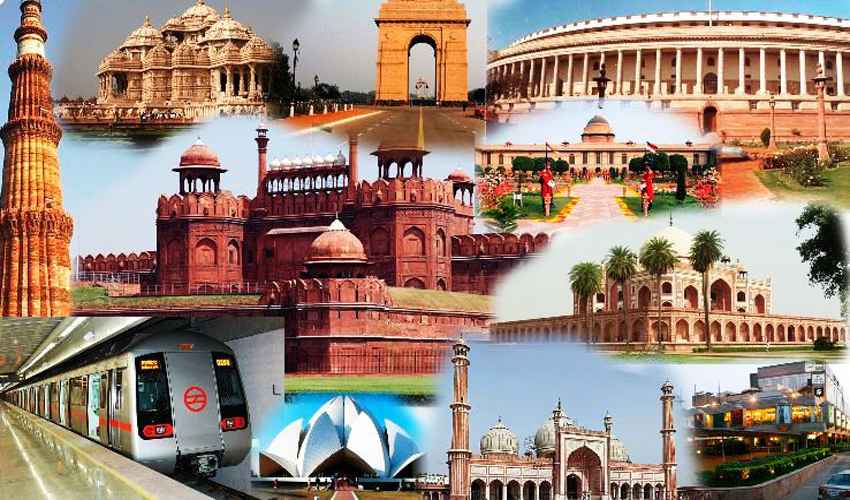The Delhi Tourism and Transportation Development Corporation (DTTDC) stands as a pivotal organization in the growth, enrichment, and transformation of tourism and transportation infrastructure in India’s national capital. Established in December 1975 as an undertaking of the Government of Delhi, DTTDC’s mission has consistently revolved around promoting Delhi’s rich heritage and modern attractions, while simultaneously supporting efficient transportation for locals and tourists alike.
Historical Background and Organizational Mandate
Conceived during an era when India’s capital was beginning its modern transformation, DTTDC was created to catalyze tourism, support major events, introduce innovative travel services, and contribute to the city’s infrastructural progress. Over the decades, the corporation’s authorized share capital has reached ₹10 crore, and it manages a diverse spectrum of activities — some falling outside traditional tourism — to generate essential revenue for the city, most notably via its retailing of liquor, which subsidizes many of its development projects.
Core Activities and Services
DTTDC harnesses a multifaceted approach to develop Delhi as a world-class tourism destination:
1. Tourist Information and Facilitation
- Information Counters: DTTDC operates information counters at major embarkation and disembarkation points, including railway stations and airports, as well as in other cities, offering travel tips and resources for visitors.
- Travel Desk & Services: The corporation provides domestic and international ticketing, foreign exchange, car and coach rentals, and curated sightseeing tours, making it a comprehensive travel facilitator for both Indians and foreigners.
- Regular and Customized Tours: DTTDC organizes city tours, short excursions, and theme-based heritage walks, including the recent “Delhi Tourism Heritage Walk Festival” and specialized youth fellowships to promote the city’s history and culture.
2. Iconic Tourism Projects & Cultural Hubs
DTTDC has established and manages some of Delhi’s most famous tourist attractions:
- Dilli Haat: An open-air craft and food market, offering artisans from across India a direct connection to buyers and acting as a magnet for both tourists and locals. The original INA market has expanded to sites like Pitampura.
- Garden of Five Senses: Innovatively developed near Saket, this park is a focal point for art, leisure, events, and eco-tourism; plans for its upgradation are underway to align with international standards.
- Azad Hind Gram: A rural tourism complex developed in the memory of Subhas Chandra Bose.
3. Events, Festivals, and MICE
- Annual Festivals: DTTDC orchestrates major events like the Qutub Festival, with classical dance and music at historic monuments, aiming to position Delhi as a vibrant global cultural hub.
- Music and Light Shows: At Ajmal Khan Park and Old Fort (Purana Qila), the corporation conducts musical fountains and sound-and-light shows, enmeshing entertainment with heritage education.
- Conferences and Exhibitions: The corporation manages venues and logistics for various meetings, incentives, conferences, and exhibitions (MICE) in the city.
- Youth Engagement: The pioneering 2025 Tourism & Heritage Fellowship, offering a ₹50,000/month stipend to young guides, is mobilizing Delhi’s youth in cultural entrepreneurship and urban history.
4. Infrastructure and Urban Mobility
- Flyovers and Urban Development: DTTDC has played a major role in constructing flyovers crucial for seamless urban mobility, many funded via profits from its liquor business.
- Hop-On-Hop-Off (HoHo) Bus Services: Introduced in 2010, this service targets tourists who seek flexible, self-paced sightseeing. With multi-lingual commentary and fixed routes, it deepens visitor experiences across Delhi’s diverse neighborhoods and heritage spots.
- Car and Coach Rentals: The corporation provides transport rentals to tourists and government bodies, supporting group connectivity for special interest tours, schools, and corporates.
5. Social and Promotional Activities
- Publicity and Literature: DTTDC produces a vast array of literature—maps, brochures, event guides—for distribution at info counters and through digital channels, fostering an informed and inviting image.
- CSR and Community Programs: Through partnerships with educational institutions and civic organizations, DTTDC arranges educational tours, environmental drives, and social responsibility initiatives targeting sustainable, eco-friendly, and accessible tourism.
Recent Initiatives and Forward Roadmap (2025)
This year (2025), DTTDC has embarked on an ambitious upgrade of Delhi’s tourism and mobility infrastructure:
- Major Beautification Projects: Redevelopment of the Garden of Five Senses and enhancements to the Yamuna riverfront, integrating environmental restoration with public leisure spaces.
- Heritage Walks and Tour Circuits: Introduction of new theme-based heritage routes and experiential tourism products, deepening engagement for both residents and visitors.
- Expanded Outreach: DTTDC is participating in a growing number of international and national events, while increasing the number of fairs and festivals, with projections of up to 500,000 visitors annually at these gatherings.
- Tourist Information Expansion: New tourist information counters, such as the one scheduled for opening at IGI Airport’s Terminal-III, make Delhi’s hospitality ecosystem more accessible to international travelers.
- Transparent Governance: DTTDC actively publishes tenders and procurement notifications online, ensuring transparency and encouraging competitive development partnerships.
Conclusion
The Delhi Tourism and Transportation Development Corporation continues to be an engine of growth for the capital, balancing commercial acumen (via revenue-generation projects) with a strong public mandate for cultural preservation, sustainable infrastructure, social responsibility, and urban mobility. As Delhi evolves as a dynamic global city, DTTDC’s integrated approach to tourism and transportation ensures that India’s capital remains not only a showcase of its ancient heritage but also a gateway to modern urban experience and inclusive prosperity.
